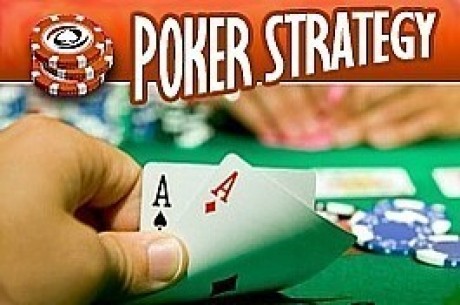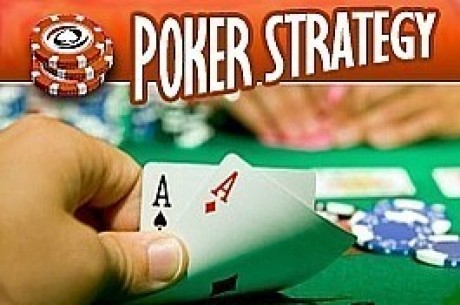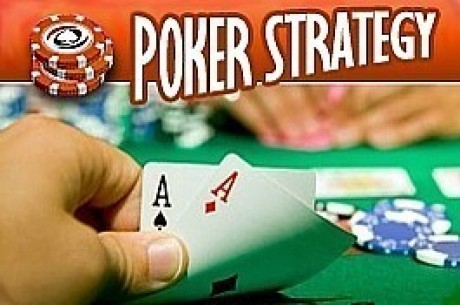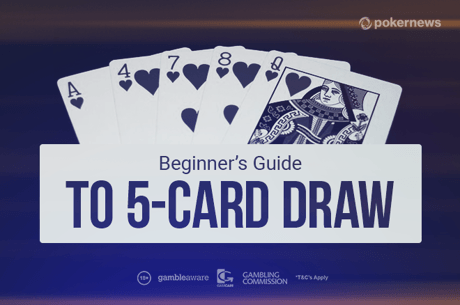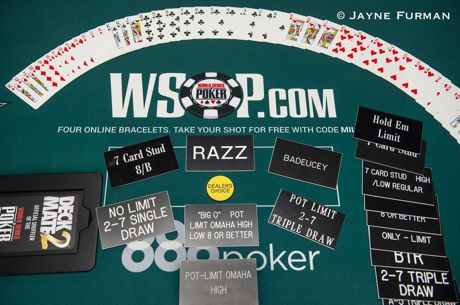Talking HORSE with Lou Krieger Vol. 10: Let��s Keep Playing Razz
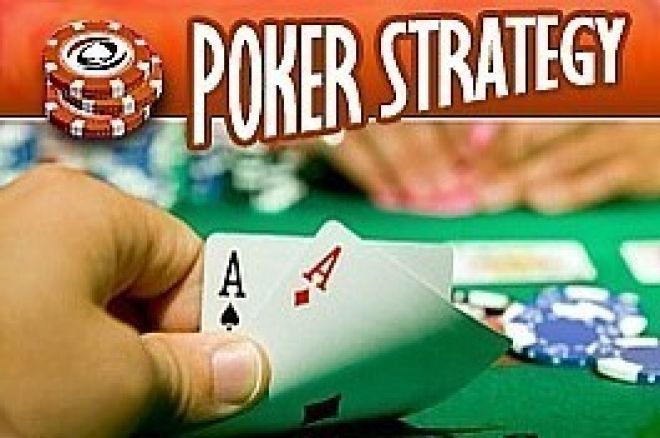
When we left off last time, I was playing razz against a well-known tournament pro who had raised with K-10 showing against my 9-7. I reraised, knowing the best hand he could have at that point was K-10-2-A. He had three more cards coming, and had to catch two that were better than 9-7 in order to beat me �� and that��s assuming that my hand didn��t improve either.
My next card was an eight. He paired his ten and folded when I bet. He played like a complete fish until he blew through three racks and stormed out the door.
I can��t tell you why he played that poorly. But everyone at the table knew that we had a designated live one, and as long as he was willing to throw off chips on hands that really were untenable, we were going to sit there and keep playing. Yes, he may have been a name tournament player, but he made his bones at no-limit hold��em, and that��s a very different game than fixed-limit razz.
Razz is not a game that lends itself to much bluffing. Even if you credit an opponent for the best possible hidden cards he could have, you��ll often know with certainty when you have the best of it. You��ll also realize when the chances of outdrawing your opponent are too slim to risk your money. After all, most razz hands get heads-up rather quickly, and the pot odds often won��t justify buying another card.
When you do have your opponent in a position where you know that he cannot win, he is board-locked. He��s drawing dead. And if he��s not drawing dead, he��s certainly circling the drain. If he��s willing to play back at you under these circumstances, you stand only a very small chance of losing the hand, and you ought to be glad for the opportunity to get as much of your money into the center of the table as you can.
An opponent who doesn��t know when he��s board-locked is a complete fish. An opponent who suspects he is board-locked, event though he��s really not sure �� along with the opponent who just knows he��s bucking very long odds to catch well enough to win a hand in which you have a big edge �� is a poor player who is guaranteed to give you a lot of money in a relatively short period of time.
The absolute clarity of situations like these make razz appear almost to have been designed to teach each and every one of us how to become better poker players. If you can��t learn to exercise discipline playing razz, you��re unlikely to ever learn it.
If you haven��t figured it out yet, razz is a game of scary boards. On fourth street, if you have two wheel cards showing and your opponent��s two up-cards are higher than yours, he would be hard-pressed to keep playing against you if he��s a solid, disciplined player. Even if you had two face cards in the hole and he had two good hole cards, you know with certainty what his best possible hand is, while can only guess about the quality of yours.
Suppose you have Q-J in the hole, but an A-3 exposed, while your opponent has 10-9 exposed and A-5 in the hole. You know that the best hand he could possibly have would be a ten-high at this juncture, and he knows that you know that. All he sees in your hand are two wheel cards, and he has to guess about the quality of your hidden hole cards. For all he knows, you could have two more unpaired wheel cards and he��s a very long shot to win the hand. Even if he suspects you of having 8-7 in the hole, he��s still in dire straits.
There��s just no way he can put you on two big cards. If he does, it��s just a guess �� and he knows it. So if he��s a good razz player, he��ll fold and wait for better cards. If he��s a fish and keeps calling, he��ll release his hand if he catches bad and you catch good. But even if you pair one of your exposed cards and he catches a baby, all you need to do against that kind of opponent is continue to bet for value whenever you have the best of it, and you��ll take his money.
This is why razz can be a poor game, or an extremely good one. It all turns on the quality of your opponents.
Razz punishes undisciplined play more than any other form of limit poker. While it��s quite possible for an unschooled, undisciplined hold��em player to book wins out of sheer luck, it is almost unthinkable in razz. If you play razz against an undisciplined opponent, you are an overwhelming favorite regardless of his style of play.
I hope I��ve whetted your appetite for playing razz, or at least exploring the opportunities that you might encounter during the razz orbit of a HORSE game. Now that you��ve gotten a feel for some of razz��s overriding concepts, next time we��ll explore some specific strategic concepts you should be using in your game.
# # #
Lou Krieger is the editor of Poker Player Newspaper. He��s the author of more than 400 articles on poker strategy and 11 books on poker. He can also be heard on the internet radio show, ��Keep Flopping Aces�� which airs Thursday night at 9 p.m. Eastern Time (6 p.m. Pacific) on www.roundersradio.com.

